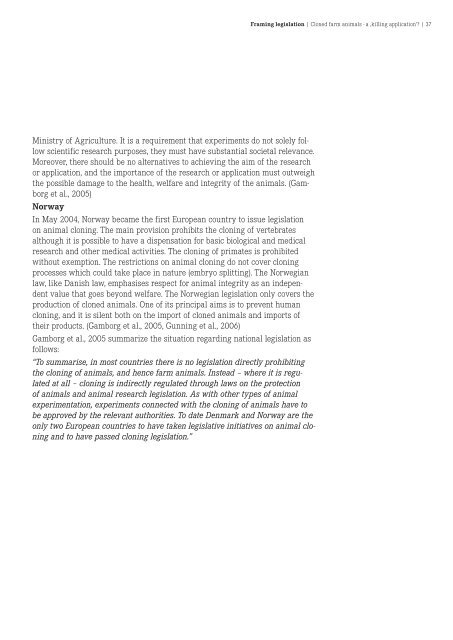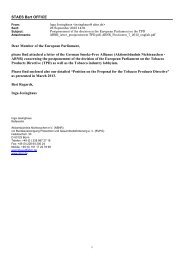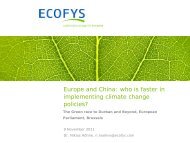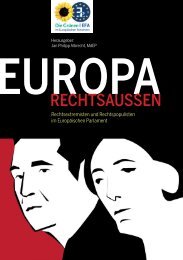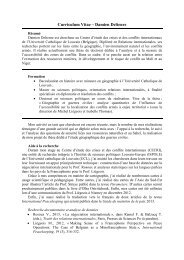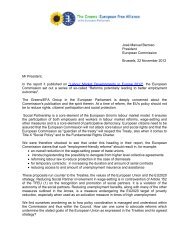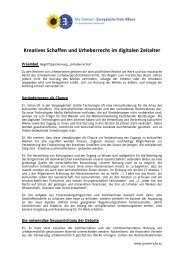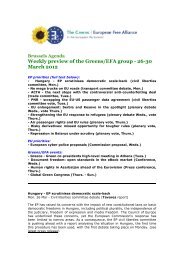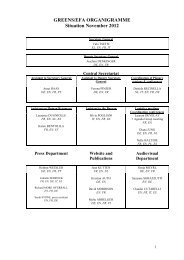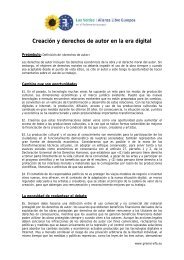Agro-Biotechnology: - The Greens | European Free Alliance
Agro-Biotechnology: - The Greens | European Free Alliance
Agro-Biotechnology: - The Greens | European Free Alliance
You also want an ePaper? Increase the reach of your titles
YUMPU automatically turns print PDFs into web optimized ePapers that Google loves.
Ministry of Agriculture. It is a requirement that experiments do not solely follow<br />
scientific research purposes, they must have substantial societal relevance.<br />
Moreover, there should be no alternatives to achieving the aim of the research<br />
or application, and the importance of the research or application must outweigh<br />
the possible damage to the health, welfare and integrity of the animals. (Gamborg<br />
et al., 2005)<br />
Norway<br />
In May 2004, Norway became the first <strong>European</strong> country to issue legislation<br />
on animal cloning. <strong>The</strong> main provision prohibits the cloning of vertebrates<br />
although it is possible to have a dispensation for basic biological and medical<br />
research and other medical activities. <strong>The</strong> cloning of primates is prohibited<br />
without exemption. <strong>The</strong> restrictions on animal cloning do not cover cloning<br />
processes which could take place in nature (embryo splitting). <strong>The</strong> Norwegian<br />
law, like Danish law, emphasises respect for animal integrity as an independent<br />
value that goes beyond welfare. <strong>The</strong> Norwegian legislation only covers the<br />
production of cloned animals. One of its principal aims is to prevent human<br />
cloning, and it is silent both on the import of cloned animals and imports of<br />
their products. (Gamborg et al., 2005, Gunning et al., 2006)<br />
Gamborg et al., 2005 summarize the situation regarding national legislation as<br />
follows:<br />
“To summarise, in most countries there is no legislation directly prohibiting<br />
the cloning of animals, and hence farm animals. Instead – where it is regulated<br />
at all – cloning is indirectly regulated through laws on the protection<br />
of animals and animal research legislation. As with other types of animal<br />
experimentation, experiments connected with the cloning of animals have to<br />
be approved by the relevant authorities. To date Denmark and Norway are the<br />
only two <strong>European</strong> countries to have taken legislative initiatives on animal cloning<br />
and to have passed cloning legislation.”<br />
Framing legislation | Cloned farm animals - a ‚killing application‘? | 37


